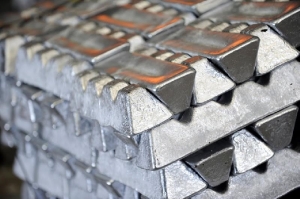


(Posted on 12/10/20)
As part of its environmental modernization program, by 2024 RUSAL, a leading global aluminium producer, plans to completely switch the reduction area of the Krasnoyarsk aluminium smelter (KrAZ) to a new type of raw material, an eco-friendly pitch.
In 2019, RUSAL accounted for about 5.9% of global production of aluminium and 6.3% of alumina production. RUSAL's offices are operating in 20 countries all over the world and across 5 continents.
Unlike the traditional raw material, eco-friendly pitch is less tarry in nature and its application in the aluminium production process is less harmful for the environment. The implementation of this and other technical innovations at KrAZ will lead to a reduction of benzapyrene emissions’ by at least 60% in the upcoming years.
“The transition to the eco – friendly pitch at a production facility is a complex technological process. The environmental efficiency from using the material is confirmed by laboratory tests conducted by the RUSAL’s engineering and technology center (ETC). We are glad to see that RUSAL has been initiating and implementing the most favourable environmental solutions at KrAZ for more than 15 years whilst also interacting with authorities and the locals”, said Vitaly Badmaev, first Deputy Minister of ecology and environmental management of the Krasnoyarsk territory.
“The transition to a new eco – friendly type of raw material developed by the RUSAL engineering center at the Krasnoyarsk aluminum smelter is not a simple process; it is very dependent on suppliers who must modernize their own production. We also continue to invest in R&D and work with suppliers who could produce both this and other types of eco - friendly raw materials for us in the required volume, because environmental issues are an absolute priority today." said Viktor Mann, RUSAL's technical Director.
The comprehensive environmental program at KrAZ was launched in 2004 and comprised two stages. The first stage focused on the smelter building and involved commissioning new gas treatment systems, installing an automated production process management system, and introducing the dry anode process. The second stage involved introducing the best available technologies including the modification of KrAZ reduction cells to utilise the EcoSoderberg process.
As a result of the 16-year environmental program, the smelter's total emissions have been cut by 38%, while fluoride emissions are down by 76%. Today, the smelter's emissions, which end up in the air of the city, are 4.5 times less than they were back in 1980.
The National Grain and Feed Association (NGFA) has applauded Senator Deb. Fischer’s (R-Neb.) reintroduction... Read more
Anglo American plc and Teck Resources Limited have received regulatory approval from the Government... Read more
The Rhodes Ridge Joint Venture has approved a $191 million (A$294 million) (Rio Tinto share $96 million... Read more
Trafigura Group Pte Ltd, a global leader in the commodities industry, has announced its financial results... Read more
Rio Tinto has successfully produced the first copper from the Johnson Camp mine in Arizona using its... Read more
The American Soybean Association’s World Initiative for Soy in Human Health programme and the... Read more
Karlka Nyiyaparli Aboriginal Corporation (KNAC) Registered Native Title Body Corporate and Rio Tinto... Read more
OCI Global, a leading global producer and distributor of nitrogen products has announced that it has... Read more
In December 2024, SSAB was granted a permit by the Land and Environment Court at Umeå District... Read more
The President of the Republic of Guinea has joined project partners WCS1, Baowu, Chinalco and Rio Tinto... Read more